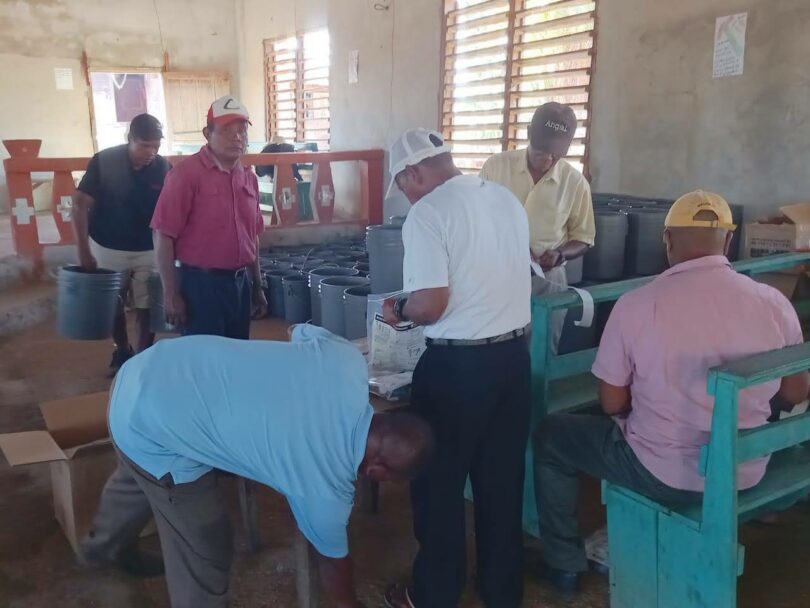(Water filters and buckets are distributed in Tum Tum Tara, Honduras. These filters will provide a family with clean drinking water for up to 10 years. Moravian Congregations from across North America have been helping to purchase and distribute these filters through the Board of World Mission)
When the Roll Is Called Up Yonder
By Bishop Chris Giesler
Preaching Text: Matthew 25:31-40
A popular gospel tune has a chorus that goes like this:
When the roll is called up yonder,
When the roll is called up yonder,
When the roll is called up yonder,
When the roll is called up yonder, I’ll be there.
I grew up hearing stories in Sunday School about the Book of Life and the need to do whatever was necessary to ensure my name was in it. Since calling the roll was a regular part of my childhood Sunday School classes, I took it to mean that showing up for class was essential to making sure my name would also appear in that BIG BOOK. But in our text for today, Jesus talks about that roll call.
In Jesus’ day, flocks of sheep and goats could frequently be seen just beyond the limits of any small town or city if not strolling down Main Street. It was an image that would have been as common for them as we see parking lots full of cars. Often, goats and sheep were kept in the same fold for simplicity’s sake, but there were also times when the sheep and goats would need to be separated (such as when it was time for shearing).
Jesus used this familiar image to illustrate just how important caring for others is in the kingdom of God. For Jesus, helping others is the primary criterion by which entrance into the kingdom of heaven is judged. This is the only passage in the Gospels where Jesus does this, which means we must carefully consider it. While we in the church might hold church attendance, giving generously to the church budget, and living an upright life as high on the priority list, none of that appears on Jesus’ list. This does not mean that we should ignore supporting the church with time, effort, and financial support, but it does tell us that we must recognize the priorities that Jesus gives us for our daily living. This passage should also challenge us as a church to align our priorities with Jesus’.
In this important passage, Jesus outlines how we can best be an answer to the prayer, “Thy will be done on earth as it is in heaven.” We must remember that our motivation to serve others is not to earn our way into heaven or be seen as big-hearted by others. More to the point, our motivation is to see the world through the compassionate eyes of Jesus and to do what we can to help others, just as Jesus did.
As Moravians, we celebrate August 13, 1727, as the spiritual rebirth of our church, but the story did not stop there. This movement of the Holy Spirit was followed by an intense focus on mission beyond the Herrnhut community. By 1732 (just five years later), the first missionaries were on their way to St. Thomas to bring the good news of God’s love to the enslaved population of that Caribbean island. And soon after that, there were Moravians all over the world!
Questions for reflection in your sermon:
- How does your congregation’s budget reflect a priority to help others? Remember, a part of your congregation’s support of the Provincial budget also goes to fund many outreach efforts, including Board of World Mission initiatives around the world.
- Can you think of ways Moravian or local church mission efforts have fulfilled this balance of inward spiritual growth while seeking to reach out and care for others?
- How can congregations highlight the community service opportunities available to their members? Here, it is important to come up with things that a variety of people with different abilities can help with. The examples Jesus gives in this passage are a great place to begin. These might be praying for others, writing care cards, providing rides, doing projects around the house of an elderly member, helping at area food banks, and visiting residents in nursing homes.
- How can we allow the Holy Spirit to move us beyond the walls of our church buildings to make a difference in the lives of those suffering down the street and across the globe?
While we live on this earth, we should not be concerned about the roll up yonder. Instead, we should allow our love of Jesus and desire to serve as he did call us to look with compassion on a world that needs love and care.







